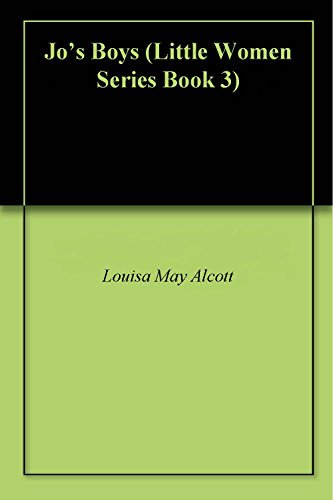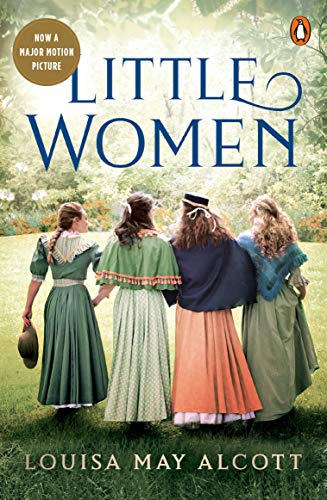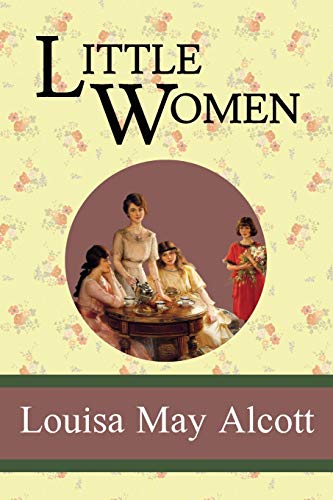Louisa May Alcott
Little Men Life: At Plumfield With Jo's Boys by Louisa May Alcott With Original Illustrations
Little Men, or Life at Plumfield with Jo's Boys, is a children's novel by American author Louisa May Alcott (1832-1888), which was first published in 1871 by Roberts Brothers. The book reprises characters from her 1868-69 two-volume novel Little Women, and acts as a sequel, or the second book in an unofficial Little Women trilogy. The trilogy ends with Alcott's 1886 novel, Jo's Boys, and How They Turned Out: A Sequel to "Little Men." Alcott's story recounts the life of Jo Bhaer, her husband, and the various children at Plumfield Estate School. Alcott's classic novel has been adapted to a 1934 film, a 1940 film, a television series, and a Japanese animated television series.
Alcott's novel narrates six months in the life of the students at Plumfield, a school run by German Professor Friedrich and his wife, Mrs. Josephine Bhaer (née March). The idea of the school is first suggested at the very end of Little Women, Part Two, when Jo inherits Plumfield Estate from her late Aunt March.
The story was originally inspired by the death of Alcott's brother-in-law, which is revealed in one of the last chapters, when a beloved character, John Brooke, from Little Women dies.
Alcott’s first inspiration for bringing educational ideals into the home and the development of a home-like model into the classroom, stems from her father, Amos Bronson Alcott, “an educational reformer and prominent Transcendentalist.” As a “Transcendentalist visionary,” her father was considered unconventional even among his reform contemporaries. Educational theorists such as Johann Heinrich Pestalozzi, also provided the inspiration for Alcott’s educational methodologies and “stressed the need for the school to be as homelike as possible."
As an educational reformer, Alcott's father believed education, “should simply turn the child’s mind inward to recognize that divinity.”[6] Alcott's father also “believed that the theatrical performance of moral allegories by children would train them in the self-restraint that was the basis of domestic harmony and happiness."
Bronson Alcott’s appeal to children’s imagination “was part of an effort to harness the child’s imaginative powers to the pursuit of the passionless life.” Alcott incorporates family dramatizations for the children of Plumfield to teach children "how to control every aspect of their self-expression.”
- Pages
- 118
Enjoy reading Little Men Life: At Plumfield With Jo's Boys by Louisa May Alcott With Original Illustrations? You may also like these books
-

Louisa May Alcott
Little Women: Complete Series: – 4 Novels in One Edition: Little Women, Good Wives, Little Men and Jo's Boys
eBook (Louisa May Alcott Jan. 10, 2020) -
Z

Louisa May Alcott
The Little Women Collection: Little Women, Good Wives, Little Men, Jo'S Boys.
Paperback (Independently published Dec. 23, 2019) -
Z

Louisa May Alcott
The Little Women Collection: Little Women; Good Wives; Little Men; Jo's Boys
Paperback (Aladdin Dec. 3, 2019) -
Z

Louisa May Alcott
Little Women
Paperback (CreateSpace Independent Publishing Platform March 18, 2016)















